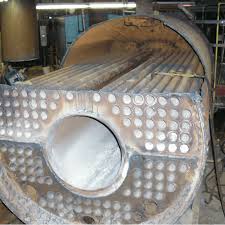ce certification boiler system
Understanding CE Certification for Boiler Systems
In the global marketplace, product certification plays a crucial role in ensuring safety, quality, and compliance with regulatory standards. One of the most recognized marks of safety and conformity is the CE marking, particularly significant in the European Union (EU). For boiler systems, CE certification is essential for manufacturers seeking to sell their products within the EU, as it indicates that the equipment meets stringent European safety and environmental regulations.
What is CE Certification?
CE marking, which stands for Conformité Européenne, translates to European Conformity. It is a mandatory conformity mark for certain products sold within the European Economic Area (EEA). This mark signifies that a product adheres to the relevant EU directives, ensuring it meets high standards of safety, health, and environmental protection.
For boiler systems, the most relevant directive is the Pressure Equipment Directive (PED), which governs the design and manufacture of pressure equipment and assemblies. Achieving CE certification means a boiler system has been rigorously tested and evaluated to confirm it can operate safely under specified pressure conditions.
The Importance of CE Certification for Boiler Systems
1. Market Access CE certification is critical for manufacturers who want to access the EU market. Without the CE mark, boilers cannot legally be sold or used in the EU, which can significantly limit business opportunities and market reach.
2. Safety Assurance CE certification assures customers that the boiler system has met essential safety requirements. This is especially vital in industries where safety is paramount, such as in healthcare, food production, and power generation.
3. Quality Standards Beyond safety, CE certification implies a commitment to quality. It encourages manufacturers to enhance their production processes and overall product quality, ensuring they can compete effectively in the market.
4. Liability and Trust Certified products instill confidence among users. When customers see a CE mark, they can trust that the boiler system has been independently verified, reducing liability risks for manufacturers regarding performance and safety.
ce certification boiler system

The CE Certification Process for Boiler Systems
The process of obtaining CE certification for a boiler system involves several key steps
1. Determining Applicable Directives The first step is to identify which EU directives apply to the specific type of boiler system. For instance, besides the PED, other directives such as the Low Voltage Directive (LVD) and the Electromagnetic Compatibility (EMC) Directive may apply.
2. Product Testing and Evaluation The manufacturer must conduct thorough testing of the boiler system to verify compliance with the applicable directives. This may include pressure tests, safety checks, and performance evaluations.
3. Document Compilation Manufacturers must compile a technical file that documents the design, manufacturing processes, and compliance with safety standards. This file is crucial for demonstrating that all requirements have been met.
4. Declaration of Conformity Upon successful testing and documentation, the manufacturer issues a Declaration of Conformity, which officially states that the boiler system meets all relevant EU directives.
5. Affixing the CE Mark Finally, once all procedures are completed, the CE mark can be affixed to the product. This mark must be displayed prominently on the boiler system and accompanying documentation.
Conclusion
CE certification is a vital component in the manufacturing and marketing of boiler systems within the EU. It not only opens up significant market opportunities but also promotes safety, quality, and trust. For manufacturers, understanding and navigating the CE certification process is essential to ensuring their products meet the necessary EU standards, ultimately benefiting both the company and its customers. With the ongoing emphasis on safety and environmental protection, CE certification will remain a crucial aspect of product compliance in the boiler industry.
-
Top Electric Steam Boiler Manufacturers - High Efficiency SolutionsNewsJul.30,2025
-
Top Electric Steam Boiler Manufacturers – Efficient Industrial SolutionsNewsJul.29,2025
-
Top Electric Steam Boiler Manufacturers | Reliable Industrial SolutionsNewsJul.29,2025
-
OEM Steam Boiler Solutions for Custom Needs | High Efficiency & VersatilityNewsJul.29,2025
-
High-Efficiency Thermal Oil Boiler for Industrial Heating SolutionsNewsJul.29,2025
-
Top Electric Steam Boiler Manufacturers for Industrial EfficiencyNewsJul.28,2025

